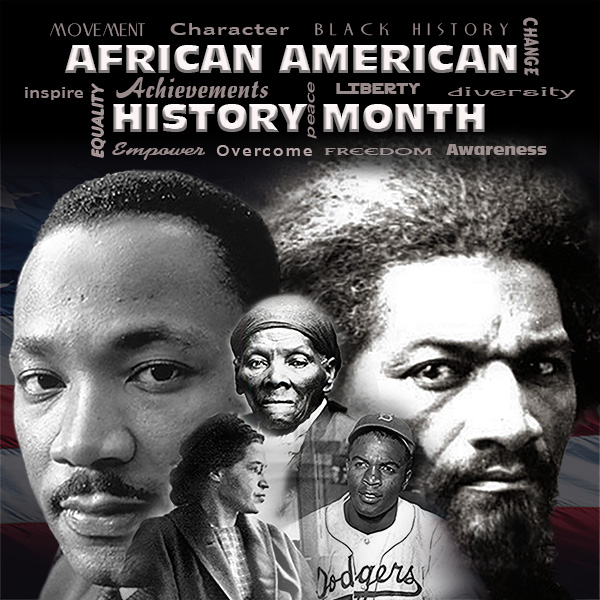Reflecting on Black History Month
The United States is honored to be considered a Melting Pot, and yet, students are learning more about Black History on Tik Tok than at school.

Districts across the nation are always eager to celebrate holidays and events, host spirit weeks, and bring students together for different causes. However, when February comes around, they all go silent. February is Black History Month, arguably one of the most crucial parts of America’s history, and instead of effectively educating students, districts across the country just barely scratch the surface.
Black History Month, started by Dr. Carter G Woodson, was originally just a week used to solely educate black youth about their history. Dr. Woodson chose the second week of February because Abraham Lincoln, George Washington, and Frederick Douglass celebrated their birthdays in February, but later, President Gerald Ford officially devoted the entire month of February to Black History. “We should emphasize not Negro History, but the Negro in History” – Dr. Carter G Woodson.
While most schools do acknowledge February as Black History Month, lessons around Black History vary from place to place.
“I’ve learned more about Black History month and serious lack issues on Tik Tok than I have in school my entire life,” sophomore Claire Clemmer states.
“I’ve learned more about the serious atrocities of slavery on the internet and Tik Tok than any teacher has ever taught me.” Freshman Isha George preaches, “as a woman of color, I feel underrepresented in most aspects of life, and as a child I wish to be represented at school, but that’s hard to do when studies of minorities and their struggles are overlooked for what’s mainstream and favorable.”
When teachers were asked about the education they received, responses were all over the board as well.
“Honestly, I believe that when I was in high school we only briefly covered Rosa Parks and Martin Luther King Jr, that was it. We never engaged in conversation about race and I truly believe we were being taught the myth of a post-racial world,” Mr. Warner, psychology teacher at NAI said, while Ms. Grecco, world cultures teacher at NAI, remembered “talking about Black History and the Civil Rights Movement during the month of February, I remember just learning basic information during the elementary school years, but when I got into high school, the content became more complex.” Despite both teachers attending schools within the same region, the education they received was alarmingly different.
America has noticeably fallen short when educating youth about Black History, but through protests, marches, and the BLM movement, the country appeared to be making progress. That is, until Maria Montessori Academy in Utah presented their students with the option to not participate in learning about Black History, and disgustingly, several parents jumped at the opportunity.
“I cannot fathom the decision to simply not engage in the study of history and I am saddened that individuals would specifically avoid Black History,” said Mr. Warner. After receiving nationwide backlash, the academy has announced they are “excited to celebrate the rich content of Black History Month.”
Tik Tok, an app created for users to film short videos, has quickly become a huge source of education. A large portion of Tik Tok users are teenagers in high school or college, and many creators have taken advantage of the app in order to quickly and effectively advocate for the black community, as well as educate listeners. Specific audios and profile pictures have been used to show support, and #blackhistorymonth has over 7 million videos. How can parents continue to bash children using technology when technology is teaching more than school?
Even though creators on Tik Tok and teachers across the country have made a large impact, we all have a long way to go before Black History is fully integrated into daily life.
“Black history has gone uncovered for too long and having a month to celebrate and teach it is important in fixing that grave mistake” – Mr. Warner.

Abbey is a sophomore, and this is her second year writing for the paper. She is on the NA majorette team, and she competes on the Sensations majorette...

